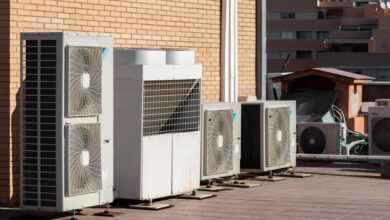Limitations and Advantages of Spray Foam Insulation

Spray foam insulation is a popular choice for homeowners and businesses alike. It is a great way to keep your property warm in the winter and cool in the summer. Spray foam is environmentally friendly and enhances the structural strength of your building. This type of insulation is ideal for people looking for an energy-efficient form of insulation.
However, before deciding, you should know some spray foam insulation limitations. In this blog post, we will discuss the pros and cons of spray foam insulation so that you can make an informed decision about whether or not it is right for you!
What is spray foam insulation?
Spray foam insulation is a type of insulation that is sprayed onto a surface using a spray foam gun. The foam then expands and dries, creating a barrier that prevents heat transfer. This barrier helps to keep your property warm in the winter and cool in the summer by trapping heat inside. It is an excellent alternative to traditional insulation methods, such as fiberglass or cellulose.
There are two types of spray foam:
- Closed-cell spray foam: This spray foam is denser and heavier than open-cell spray foam. It has a higher R-value, which means it is more effective at insulating your property. Closed-cell spray foam is waterproof and can act as a barrier to moisture.
- Open-cell spray foam: This spray foam is less dense than closed-cell spray foam. It has a lower R-value and is not waterproof. However, open-cell spray foam is more flexible than closed-cell spray foam and can be used in various applications.
Limitations of spray foam insulation
Here are some of the limitations of spray foam insulation you should know before deciding to use it.
Shrinking
As spray foam insulation ages, it begins to shrink, reducing its insulative qualities. This is especially true in areas that experience harsh temperatures. Shrinking can result in this insulation pulling away from the framing of your property, leaving gaps that allow heat to escape.
High initial cost
Spray foam insulation is one of the market’s most expensive types of insulation. The high cost is due to the specialized equipment required to apply it and the fact that it is a relatively new technology.
Installation requires lots of experience
Spray foam insulation must be installed by a professional. It is difficult to install yourself, and if not done correctly, it can result in an ineffective insulation job. Too heavy or too thin sections also risk future insulation problems for homeowners. This can be costly and time-consuming to fix.
Open cell spray form cures quickly once installed. It also folds in on itself during the curing process and creates invisible, unfilled areas. Thes unfilled areas can cause the foam to collapse. Open cell spray foam is quite tricky to get right for installers with limited experience. Therefore, it is advisable to go with highly experienced spray foam contractors who can do a great job.
Advantages of spray foam insulation
Excellent thermal qualities
Spray foam has one of the highest R-values of any insulation type on the market. It is excellent at keeping heat inside your property and preventing heat loss.
Environmentally friendly
Spray foam insulation is made from renewable resources and does not contain harmful chemicals. It is also recyclable, making it an excellent choice for people who are looking for an eco-friendly insulation option.
Prevents moisture damage
Spray foam insulation is waterproof and can act as a barrier to moisture. This helps to prevent mold and mildew growth, which can cause serious health problems.
Reduces noise pollution
Spray foam insulation absorbs sound waves, reducing noise pollution from outside sources. This can be a great benefit if you live in a busy area or near a construction site.
Improves indoor air quality
Spray foam insulation helps improve indoor air quality by sealing your property from outside allergens and pollutants. This is especially beneficial for people who suffer from allergies or asthma.
Flame retardant material
This insulation is made of flame-retardant material, making it an excellent choice for homes in areas prone to wildfires.
As you can see, spray foam insulation has both advantages and disadvantages. It is essential to weigh these factors before deciding if this insulation suits your property. If you find reputable professionals to install it, spray foam is an excellent choice that can provide many benefits.




